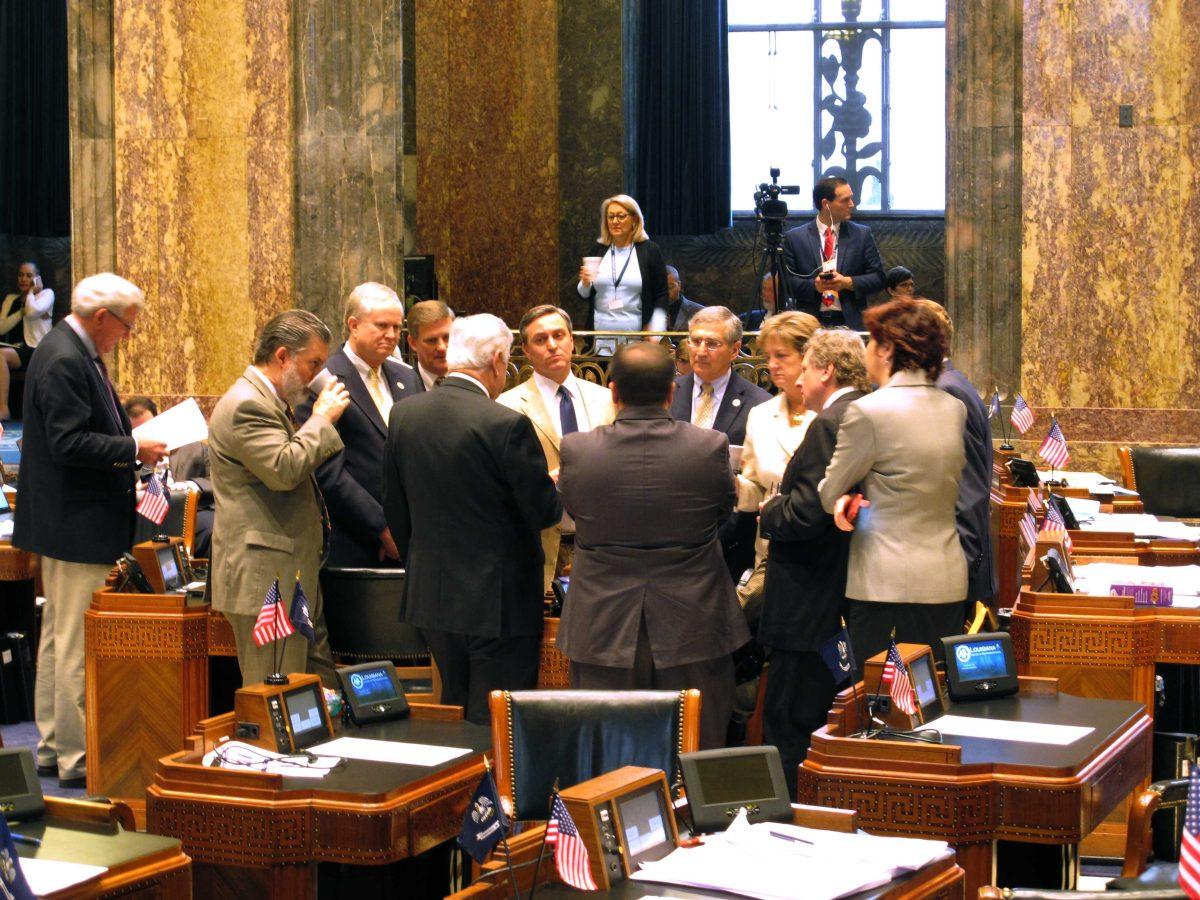For decades, Louisiana has ignored structural budget problems that have time and again brought the state to its knees in hopes that God will provide the answer to its lack of funds.
Whether divine intervention or some economic genius on an obscure floor of the State Capitol sent down budgetary aid, the Legislature always seems to find a way to patch up the shortfall. But the proverbial pot of gold at the end of the rainbow might not exist this time around with a $30-50 million deficit for this current fiscal year and an $800 million gap for the next.
In 1988, then-Gov. Buddy Roemer faced a financial crisis comparable to the one Gov. John Bel Edwards confronts now. The state’s money vanished when the price of oil plummeted in a poorly diversified economy dependent upon its success.
Calls for long-term structural reform came and went in 1988 and have waxed and waned during this past legislative special session. Some reforms materialized and others did not.
The state partly diversified its economy following the crisis in 1988, which was created by tax cuts during economic prosperity in the early 1980s and a global oil crisis to follow. Currently, oil revenues continue to make up 13 percent of the budget.
The problem Louisiana faces today is not only the result of the 2008 financial crisis and a lack of state revenue. It also includes eight years of political maneuvering in search of the White House and a legislature hesitant to defy a state governor, whose constitutional powers are some of the most powerful in the United States.
With a line item veto, allowing for pin-point attacks on defiant legislators, then-Gov. Bobby Jindal refused to raise revenues, and instead cut higher education, healthcare and many state agencies down to the bare bone. While he kept a no-tax increase promise to Grover Norquist, whom Jindal believed would help win him the presidency, the governor ramped up corporate tax incentives and exemptions in an attempt to quickly stimulate the economy through the private sector before the 2016 presidential race.
Along with the billion-dollar tax incentive program, the governor privatized most of the healthcare industry in fast-paced, shoddy contractual agreements that could cost the state millions of dollars if the private partners bow out in the state’s current fiscal freefall.
Corporate tax incentives and privatizing certain economic sectors alone is not poor policy, but in the face of draconian spending cuts and an incredible lack of revenue, these moves became poor policy.
Jindal, for all the wrong reasons, and the Legislature, for a multitude of reasons, allowed these programs to create the façade of an attractive Louisiana economy.
But that’s all it was: a façade.
The structural problems of a complex corporate tax code placated with millions of dollars in tax exemptions and a sales tax structure with over 190 exemptions made for an ugly reality under the disguise of Jindal’s fiscal policy.
The masquerade ended, and the fiscal shortfalls sit uncomfortably in the laps of state lawmakers.
Louisiana still needs a more diversified economy, and some corporate tax incentives help make that a possibility. However, others cost the state millions of dollars only to subsidize wealthy, national ventures.
The state’s budgetary drama will loom over legislators during the next few months, as the lawmaking body cannot legally raise revenue in this year’s general session. The fiscal session of 2017 will ominously simmer in the background of this session’s controversial discussions of TOPS reform, abortion, Confederate monuments, concealed carry permits and gay marriage.
Between now and next March, the legislature must inspect the state’s corporate and sales tax codes with a magnifying glass. It must determine which incentives and exemptions aid the economy and which ones cost the citizens more than they receive in benefits.
The problems with Louisiana’s tax code existed in 1988, and now they plague the state today. As evidenced, history will repeat itself if long-term reform fails to come, and the victims will not only be our generation, but our children’s generation, and their children’s generation, and so on and so forth.
Justin DiCharia is a 21-year-old mass communication senior from Slidell, Louisiana.
OPINION: Louisiana’s budget deficit created by historically ignored structural problems
March 13, 2016
Senators meet with Senate President John Alario, R-Westwego, on the Senate floor ahead of the voting on the final day of a special legislative session on the budget and taxes, on Wednesday, March 9, 2016, in Baton Rouge, La. (AP Photo/Melinda Deslatte)
More to Discover













